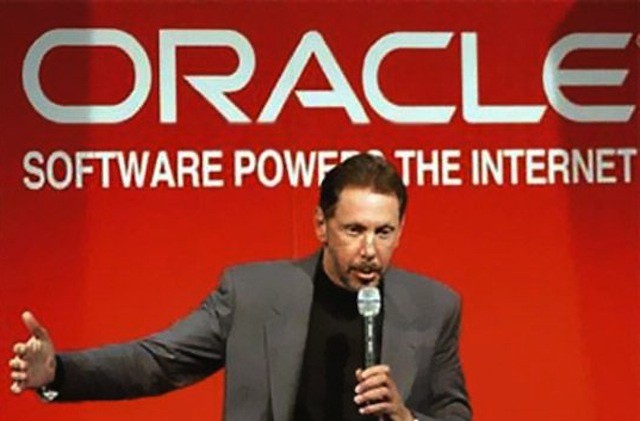One of the interesting tidbits to emerge from testimony during Oracle panent infringment trial against Google is that Oracle had considered producing its own smartphone and buying either RIM or Palm. The testimony came from Oracle chief Larry Ellison, who was a close personal friend of Steve Jobs. Ellison is, in fact, quoted as describing their relationship as “best friends” in Walter Isaacson’s biography of Jobs.
The news raises some interesting questions – not the least of which are whether Jobs knew of the plan and what impact Oracle jumping into the smartphone game against the iPhone might have had on their friendship. Jobs was obsessed with the idea that Google and its former CEO Eric Schmidt (also a former Apple board member) had ripped off Apple’s iOS design work in creating Android.
Given the close relationship between Jobs and Ellison, it’s hard to imagine that the idea of Oracle creating its own mobile platform or buying an existing one was never discussed by the two men. An Oracle phone would also have targeted business and corporate markets rather than the iPhone’s primary consumer market. So, it’s possible that Jobs wouldn’t have been as upset as he was over Android. It’s even possible that his advice may have factored into Ellison’s decision making process.
If Oracle had pursued a smartphone strategy, it most likely would’ve involved buying RIM. Ellison described the idea of creating a phone from scratch as a bad idea and also said that Palm wasn’t a competitive enough player in the smartphone market. It’s interesting to note here that Palm’s former CEO Jon Rubinstein had worked with Jobs and NeXT and at then at Apple and was instrumental in the development of the iPod before leaving the company in 2006.
It’s impossible to say for certain, but an acquisition by Oracle would likely have led the BlackBerry down a very different path. Oracle is at heart a business company and it’s doubtful that RIM would’ve tried to focus on the consumer market following the launch of the iPhone and Android. Leveraging the enterprise power of both Oracle and RIM when it was still in its prime could have prevented or, at least delayed and minimized, the iPhone’s infiltration of businesses and enterprise companies.
In particular, Ellison’s penchant for focusing technologies around information rather than the device(s) that enables users to access that information could’ve had some dramatic impact on the BlackBerry design and user experience. Ellison would’ve been a great proponent of business apps for the platform as well as the use of thin client technologies. That might have allowed the BlackBerry to develop much more of an app selection early on.
The tighter focus probably wouldn’t have derailed Apple’s iOS or Android in the overall market, but the BlackBerry and the PlayBook might have been able to maintain enough of a lock on the business market that the iPad wouldn’t have gained its incredible dominance of the business tablet space. The combined effort might even have had a serious impact on the way that the consumerization of IT movement evolved.
Ultimately, we’ll never known how Jobs reacted or if he even knew that Ellison and Oracle were considering a smartphone. As to how the fate of RIM might have been different, we can only speculate.


